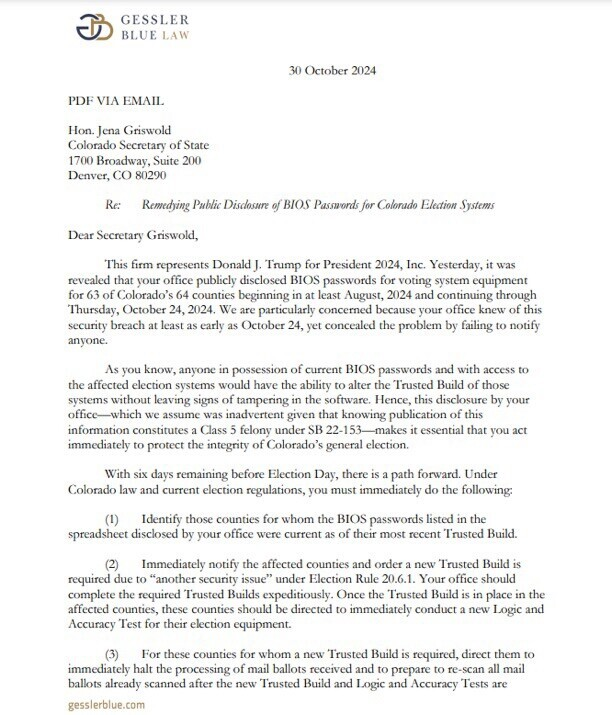Acquiring the BIOS password on a machine presents several security risks that can have significant implications, particularly in sensitive environments like voting systems or any system where data integrity and confidentiality are paramount. Here's an outline of these risks:
1. Bypassing Pre-Boot Security:
- Boot Manipulation: With the BIOS password, an attacker can change the boot order to start from an external device like a USB drive. This allows the installation of malicious software or operating systems before the legitimate OS loads.
2. System Tampering:
- Firmware Alteration: The attacker can modify the BIOS firmware or install malicious firmware. This could lead to a persistent backdoor that survives reboots and OS reinstalls.
- Malware Installation: Malware can be loaded into the system at a very low level, making it extremely difficult to detect with standard anti-virus or anti-malware tools.
3. Data Access and Manipulation:
- Full Disk Access: If the hard drive isn't separately encrypted, the attacker could access all data on the machine, including sensitive information or logs that might be relevant for auditing purposes in elections.
- Data Tampering: In voting machines or any system with critical data, an attacker could alter data, like vote counts or personal information, directly at the hardware level.

A look into how BIOS password leak effects on Colorado's Election integrity
4. Circumvention of System Protections:
- Disabling Security Features: Features like secure boot, which ensures that only trusted software loads during startup, can be disabled. This opens the system up to running unauthorized or malicious software.
- Password Reset: An attacker can reset or change user or administrator passwords, gaining control over the system's user accounts.
5. Physical Security Breach Implications:
- Physical Access: If physical security is breached, the BIOS password acts as a secondary layer of protection. However, with access to this password, this barrier is negated, making the system as vulnerable as if there was no password at all.
6. Cold Boot Attacks:
- Memory Extraction: With BIOS access, attackers could perform cold boot attacks to extract encryption keys from RAM, potentially decrypting any encrypted data on the system.
7. Persistence of Compromise:
- Hardware Keyloggers: BIOS access allows for the installation of hardware keyloggers or similar devices that can capture all inputs, including passwords entered after the BIOS stage.
8. Trust Violation:
- Loss of Trust: For systems like voting machines, the integrity of the BIOS is crucial for public trust. Compromising the BIOS undermines the confidence in the system's ability to securely manage and count votes.
9. Regulatory and Legal Consequences:
- Compliance Issues: In environments where systems are subject to regulatory oversight, a BIOS breach could lead to non-compliance with security standards, potentially resulting in legal action or loss of certification.
10. Potential for Broad Impact:
- Scalability of Attack: While changing the BIOS settings on each machine requires physical access, if not addressed, this vulnerability could be exploited on a larger scale, especially in environments with multiple machines like voting centers.
In summary, the BIOS password, while an initial barrier, when compromised, opens up a system to a range of direct and persistent attacks that can undermine the security, integrity, and confidentiality of the machine's operations. This is particularly concerning in contexts like election systems, where the stakes for security are exceptionally high.
For more information: Colorado's leak of BIOS passwords availble to public for over 5 months.